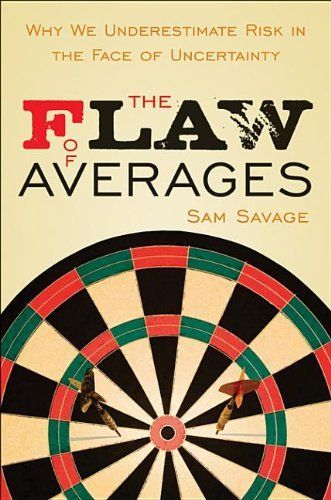
The Flaw of Averages Why We Underestimate Risk in the Face of Uncertainty
"Statistical uncertainties are pervasive in decisions we make every day in business, government, and our personal lives. Sam Savage's lively and engaging book gives any interested reader the insight and the tools to deal effectively with those uncertainties. I highly recommend The Flaw of Averages." —William J. Perry, former U.S. Secretary of Defense "Enterprise analysis under uncertainty has long been an academic ideal. . . . In this profound and entertaining book, Professor Savage shows how to make all this practical, practicable, and comprehensible . . . the Distribution String . . . represents a major breakthrough in the communication of risk and uncertainty." —Harry Markowitz, Nobel Laureate in Economics "This is a book written for laymen with enough interesting insights to engage even the most scholarly professional." —Douglas Hubbard, author of How to Measure Anything "Sam Savage is the Edward Tufte of risk." —Matthew Raphaelson, Executive Vice President, Wells Fargo A GROUNDBREAKING MUST-READ FOR ANYONE WHO MAKES BUSINESS DECISIONS IN THE FACE OF UNCERTAINTY In The Flaw of Averages, Sam Savage—known for his creative exposition of difficult subjects—describes common avoidable mistakes in assessing risk in the face of uncertainty. He explains why plans based on average assumptions are wrong, on average, in areas as diverse as finance, healthcare, accounting, the war on terror, and climate change. Savage refers to anachronistic statistical jargon as Red Words, which he defines as things that may not be uttered in a singles bar. Instead, he presents complex concepts in plain English (Green Words), backed up by interactive simulations at www.FlawofAverages.com, which connect the seat of the intellect to the seat of the pants. Savage also presents the emerging field of Probability Management aimed at curing the Flaw of Averages through more transparent communication of uncertainty and risk. Savage argues that this is a problem that must be solved if we are to improve the stability of our economy, and that we cannot repeat the recent mistakes of applying "steam era" statistics to "information age" risks.